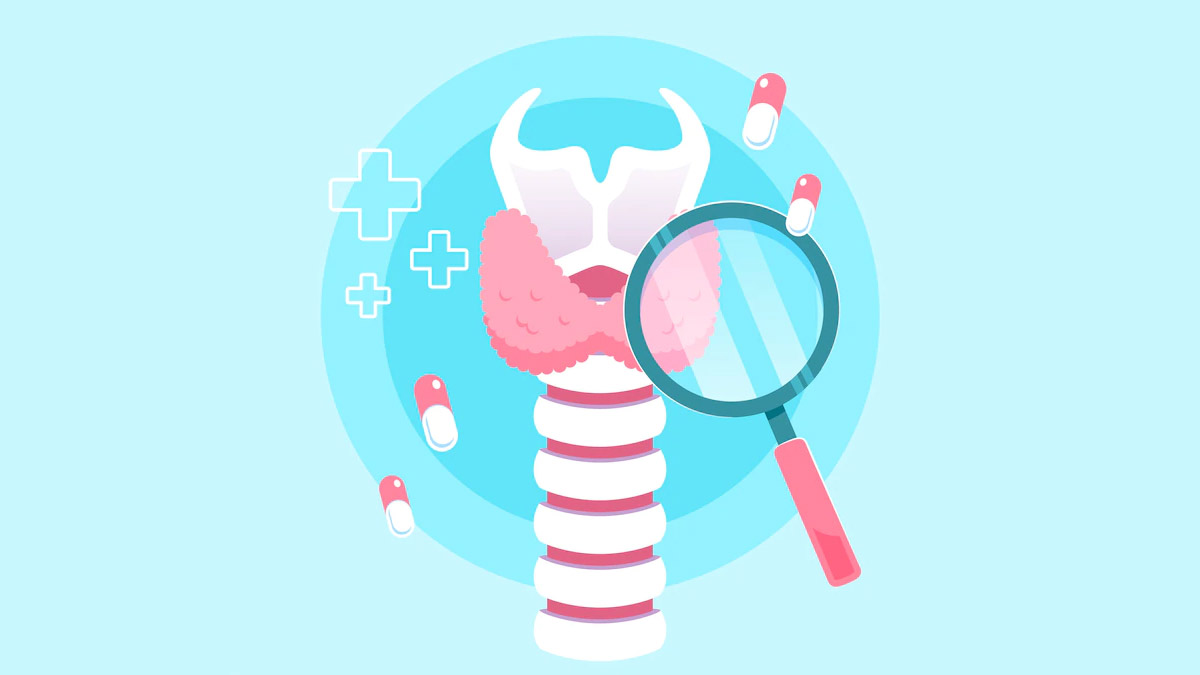
Thyroid health plays an important role during pregnancy, as it can impact both the mother and the developing baby. The thyroid gland, located in the neck, produces hormones that regulate metabolism and influence various bodily functions. Pregnancy places additional demands on the thyroid, making it essential for expectant mothers to monitor their thyroid function and seek help when needed.
Table of Content:-
“During pregnancy, hormonal changes can affect the thyroid gland's activity. Some women may develop thyroid disorders, such as hypothyroidism (underactive thyroid) or hyperthyroidism (overactive thyroid), or experience exacerbation of pre-existing thyroid conditions. These imbalances can pose risks to both the mother and the baby, leading to complications such as preterm birth, low birth weight, and developmental issues,” said Dr Seema Sharma, Consultant- Obstetrics & Gynecology, Apollo Cradle & Childrens Hospital , Moti Nagar, New Delhi.
“Knowing when to seek help is crucial for managing thyroid-related concerns during pregnancy. Regular prenatal check-ups should include thyroid function tests to monitor hormone levels. If a woman has a history of thyroid disorders or exhibits symptoms like fatigue, weight changes, or mood swings, prompt medical attention is crucial,” Dr Sharma added.
Thyroid Health And Healthy Pregnancy
In some cases, adjustments to medication dosages may be necessary throughout pregnancy, emphasising the importance of ongoing monitoring. Open communication between the pregnant woman and her doctors ensures timely identification of any issues, facilitating prompt intervention.
Thyroid health is integral to a successful and healthy pregnancy. Pregnant women should be vigilant about thyroid function, attend regular check-ups, and promptly seek medical help if any concerns arise. Timely intervention and appropriate management contribute to a smoother pregnancy and reduce the potential risks associated with thyroid disorders.

Low thyroid hormone levels, i.e. hypothyroidism, and high thyroid hormone levels, i.e. hyperthyroidism, are common diseases of the endocrine system.
Also read: Managing Thyroid Health With Diet: Expert Explains How Diet Can Help Optimise Your Thyroid Health
“The thyroid hormones are necessary for almost all day to day working of our body, and hypo or hyperthyroidism can lead to irregular periods, libido issues, adversely affect fertility, and can also cause problems during pregnancy,” said Dr Aasim Maldar, Consultant - Endocrinologist and Diabetologist, P. D. Hinduja Hospital & Medical Research Centre, Mahim.
It is not always necessary to test the thyroid hormone levels during pregnancy, unless one has symptoms suggestive of thyroid illness, or there are risk factors for thyroid disease. The obstetrician may ask for the testing accordingly at the first ante-natal visit.
What Patients With Hypothyroidism And Hyperthyroidism Will Require?
If one has already been diagnosed with hypothyroidism or hyperthyroidism, it is essential to discuss plans of pregnancy with the treating endocrinologist beforehand and get the hormone levels within normal range before trying for pregnancy. The treating endocrinologist may advise a specific treatment from all available, taking pregnancy plans into consideration.
“It is necessary to continue the thyroid medications as advised before and during pregnancy, and also important to get the tests done frequently as advised. Also, one should get the thyroid reports as soon as one gets pregnant, and follow-up with the treating endocrinologist,” Dr Maldar said.

Untreated thyroid conditions during pregnancy are linked to problems like premature birth, miscarriage and stillbirth, but with proper and regular treatment there may not be any problems during pregnancy.
Also read : 6 Food Items To Consume For Optimal Thyroid Function
Patients with hypothyroidism often require increased doses of levothyroxine during pregnancy, while those with hyperthyroidism may need modifications in ongoing medicines as well as doses over the pregnancy period.
It is often necessary to monitor the foetal wellbeing as well, as in a few instances of hyperthyroidism the thyroid antibodies can also affect the growing foetus.
Also watch this video
How we keep this article up to date:
We work with experts and keep a close eye on the latest in health and wellness. Whenever there is a new research or helpful information, we update our articles with accurate and useful advice.
Current Version